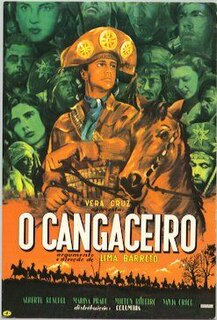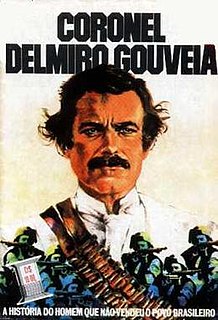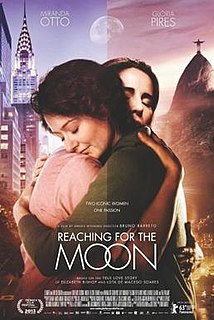| Vidas Secas | |
|---|---|
Theatrical release poster | |
| Directed by | Nelson Pereira dos Santos |
| Produced by | Luiz Carlos Barreto Herbert Richers Danilo Trelles |
| Written by | Nelson Pereira dos Santos |
| Starring | Átila Iório Maria Ribeiro |
| Music by | Leonardo Alencar |
| Cinematography | Luiz Carlos Barreto |
| Edited by | Rafael Justo Valverde |
Production company | Herbert Richers |
| Distributed by | Herbert Richers Sinofilmes |
Release date | 22 August 1963 (Brazil) |
Running time | 103 minutes |
| Country | Brazil |
| Language | Portuguese |
Vidas Secas (Brazilian Portuguese: [ˈvi.das ˈse.kas] , meaning "Dry lives"; Pre-Reform spelling: Vidas Sêcas) is a 1963 Brazilian drama film directed by Nelson Pereira dos Santos, and based on the 1938 novel of the same name by Graciliano Ramos. It tells the story of a poverty-stricken family in the dry Brazilian northeast.
This article is about the spelling reforms of the Portuguese language.
In film and television, drama is a genre of narrative fiction intended to be more serious than humorous in tone. Drama of this kind is usually qualified with additional terms that specify its particular subgenre, such as "police crime drama", "political drama", "legal drama", "historical period drama", "domestic drama", or "comedy-drama". These terms tend to indicate a particular setting or subject-matter, or else they qualify the otherwise serious tone of a drama with elements that encourage a broader range of moods.

Nelson Pereira dos Santos was a Brazilian film director. He directed films such as Vidas Secas, based on the book with the same name by Brazilian writer Graciliano Ramos.
Contents
The film stars Átila Iório, Orlando Macedo, Maria Ribeiro and Jofre Soares. It is one of the key films in the Brazilian Cinema Novo movement. It was entered into the 1964 Cannes Film Festival. [1]
Átila Iório was a Brazilian actor. He appeared in 48 films and television shows between 1946 and 1997. He starred in the 1964 film Os Fuzis, which won the Silver Bear Extraordinary Jury Prize at the 14th Berlin International Film Festival.
Cinema Novo is a genre and movement of film noted for its emphasis on social equality and intellectualism that rose to prominence in Brazil during the 1960s and 1970s. It means "New Cinema" in Portuguese, which is the official language of Brazil, the movement's "home". Cinema Novo formed in response to class and racial unrest both in Brazil and the United States. Influenced by Italian neorealism and French New Wave, films produced under the ideology of Cinema Novo opposed traditional Brazilian cinema, which consisted primarily of musicals, comedies and Hollywood-style epics. Glauber Rocha is widely regarded as Cinema Novo's most influential filmmaker. Today, the movement is often divided into three sequential phases that differ in tone, style and content.

The 17th Cannes Film Festival was held from 29 April to 14 May 1964. On this occasion, the Palme d’Or was renamed "Grand Prix du Festival International du Film", a name that remained in use through 1974, after which it became the Palme d'Or again.










